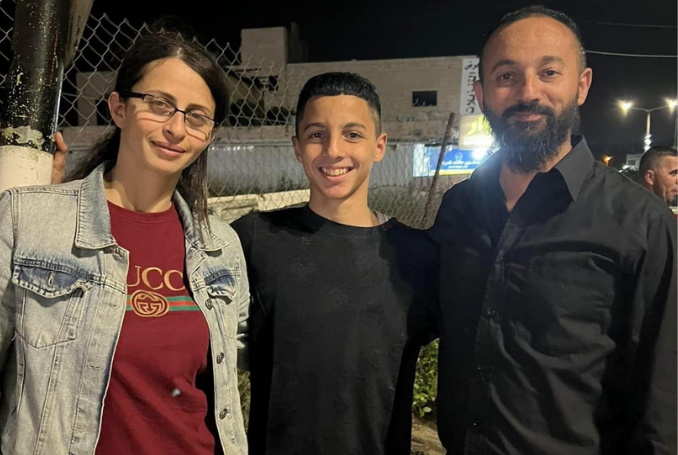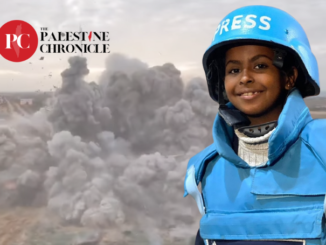
A 14-year-old Palestinian boy was released on Tuesday after spending 11 days in Israeli detention, Al-Quds Al-Arabi reported.
An Israeli military court, located close to the Ofer army base in the occupied West Bank, let Athal Al-Azzeh out on bail. Israeli prosecutors will be lodging an appeal against his release, according to Palestinian lawyer Munther Abu Ahmed.
The boy’s uncle, Mohammed Al-Azzeh, said his detention is further evidence of Israel’s targeting of Palestinian children.
The child, Athal Al-Azza, was released from the prisons of the occupation
Thank you to everyone who supported him#freeAthal#Palestine pic.twitter.com/e3uJYtajsg— Uncle ? ?? (@bani_basel) April 26, 2022
“They go after children and stop them from exercising their right to education, their right to freedom of movement, and the practice of their identity,” he said.
Israeli forces reportedly assaulted the young boy and then detained him as he traveled to his grandmother’s home in the Azzeh, or Beit Jibrin refugee camp in Bethlehem on April 15.
Israeli forces detained Al-Azzeh at the entrance of Beit Jibrin. He was taken to the illegal settlement of Gush Etzion where he was interrogated.
The teenager was moved more than once while held by Israeli forces before being taken to the Atarot settlement, according to his uncle.
Young #Palestinian #violinists demonstrate by playing music in front of the Israeli Ofer Prison on Tuesday morning, to protest the trial of their friend, 14-year-old friend Athal al-Azzeh, in an #Israeli military court. Video: Days of Palestine pic.twitter.com/leFFuLf9yv
— The Palestine Chronicle (@PalestineChron) April 27, 2022
The 14-year-old’s release came as relatives and supporters of Al-Azzeh held a demonstration near the Ofer military court during Tuesday’s court session.
Al-Azzeh was forbidden from talking to his father during Sunday’s court session and what appeared to bruise could be seen on the boy’s face, according to Al-Quds Al-Arabi.
Israel’s use of military proceedings against civilians has been widely condemned as unjust by human rights organizations, particularly when children are involved.
(The New Arab, PC, Social Media)







